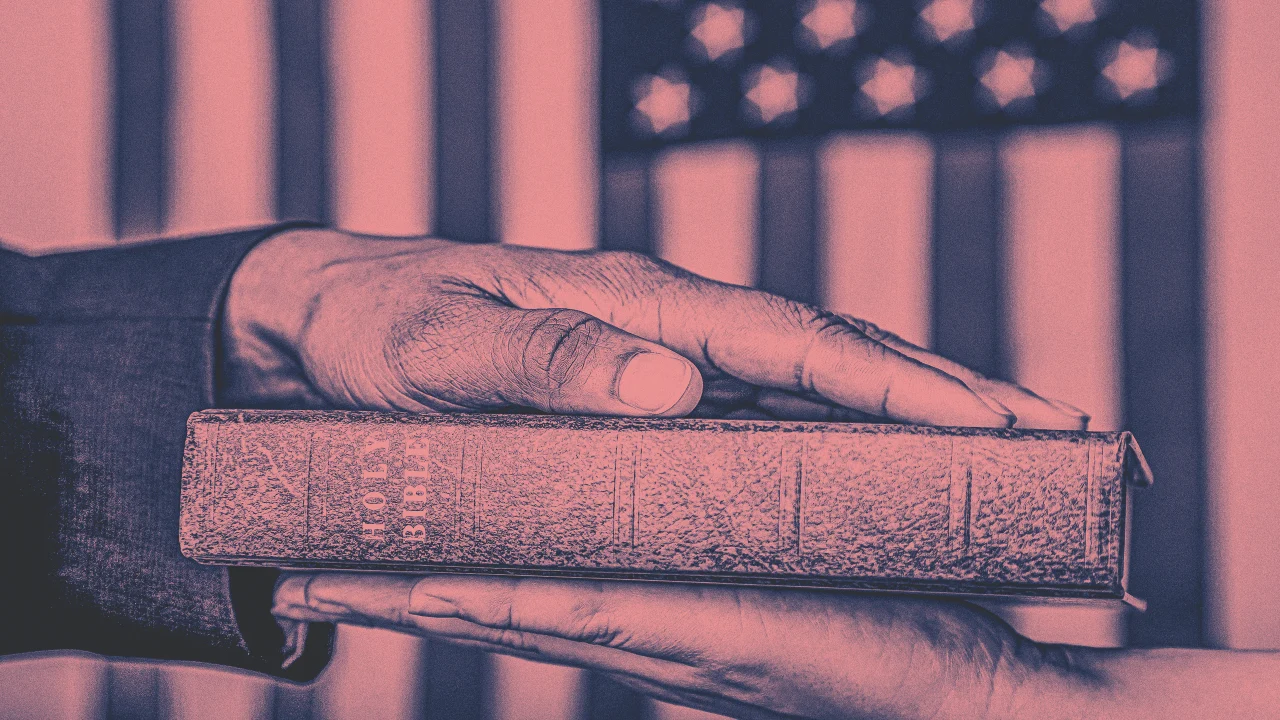The new Congress is still mostly Christian, and less than 1% have no religious affiliation at all
America is technically a secular country. However, the vast majority of members of Congress have traditionally had a religious affiliation, and they tend to be overwhelmingly Christian. Pew Research recently analyzed the religious makeup of the new 119th Congress. A decade ago, 92% of members were Christian. Last session, 88% identified as Christian. This session, only 87% of members are Christian. Here are a few key highlights from Pew’s analysis: The majority of Congress continues to identify as Christian: 461 members of Congress, or about 87%, identify as Christian. Meanwhile, 55% identify as Protestant and 14% as Baptist. For context, 62% of the U.S. population identifies as Christian, 40% as Protestant, and 11% as Baptist. About 98% of Republicans are Christian (265 out of 270 members), and 75% of Democrats are Christian (196 out of 262 members). Other religions are a small minority: Thirty-two members identify as Jewish, four as Hindu, four as Muslim, three as Buddhist, three as Unitarian Universalist, and one as Humanist. Unaffiliated Americans are underrepresented: About 28% of Americans say they have no religious affiliation, but only three members of Congress (0.6%) say they have no religious affiliation: They are new House members Yassamin Ansari (Democrat) and Abraham Hamadeh (Republican), both representing Arizona, and Emily Randall (Democrat), who represents Washington state.

America is technically a secular country. However, the vast majority of members of Congress have traditionally had a religious affiliation, and they tend to be overwhelmingly Christian.
Pew Research recently analyzed the religious makeup of the new 119th Congress. A decade ago, 92% of members were Christian. Last session, 88% identified as Christian. This session, only 87% of members are Christian. Here are a few key highlights from Pew’s analysis:
- The majority of Congress continues to identify as Christian: 461 members of Congress, or about 87%, identify as Christian. Meanwhile, 55% identify as Protestant and 14% as Baptist. For context, 62% of the U.S. population identifies as Christian, 40% as Protestant, and 11% as Baptist. About 98% of Republicans are Christian (265 out of 270 members), and 75% of Democrats are Christian (196 out of 262 members).
- Other religions are a small minority: Thirty-two members identify as Jewish, four as Hindu, four as Muslim, three as Buddhist, three as Unitarian Universalist, and one as Humanist.
- Unaffiliated Americans are underrepresented: About 28% of Americans say they have no religious affiliation, but only three members of Congress (0.6%) say they have no religious affiliation: They are new House members Yassamin Ansari (Democrat) and Abraham Hamadeh (Republican), both representing Arizona, and Emily Randall (Democrat), who represents Washington state.






















